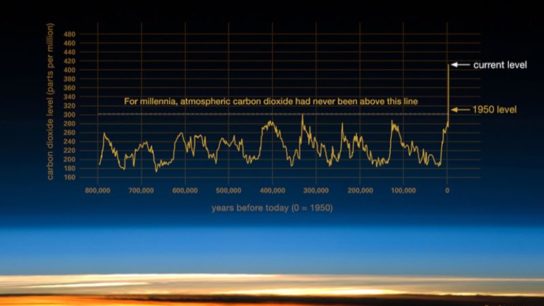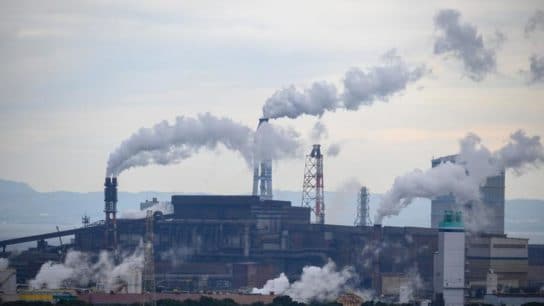From cypherpunk breakthrough to gambler’s gold, crypto-currencies have made as many people rich as they have bankrupt. As Bitcoin continues to rise in popularity, a research team looks at its oft-ignored contribution to global warming.
—
The rise of Bitcoin has been quite a phenomenon, with many making and losing a lot of money on the crypto-currency’s volatility. Just recently, Tesla invested USD 1.5 billion in the coin, boosting its value to unprecedented levels.
You may know that the production of bitcoins (called “mining”) is a highly energy-intensive process. For a bitcoin purchase to solidify, it must make it to the blockchain – but before this can happen, it has to be confirmed by supervisors, a.k.a. the miners. They chaperone the process, making sure the verification of each transaction is carried out without interference, before grouping transactions into blocks that are then added to the nigh-unhackable blockchain. Entire warehouses of hardware are dedicated to this, consuming so much electricity that in 2017, bitcoin mining was responsible for around 69 million tons of CO2 equivalent emissions – roughly equal to Austria’s annual emissions.

The finding is credited to a team of researchers from UH Manoa in Hawaii, who looked into the considerable environmental impacts of the crypto-currency’s computation requirements. They went further to say that Bitcoin cumulative emissions would be enough to bring us past 2°C global warming within 16 to 22 years.
Of course, there are a few assumptions here. They studied how fast other technologies had been adopted by society and went with the average (16 years) to slowest rate (22 years). Computing power and electricity generation sources were also averaged. Considering the unique nature of bitcoin and the concerns therein (volatility, technological and regulatory issues), it is difficult to say when or whether it will ever be widely adopted and scaled up.
Nonetheless, the study brings it to our attention that it is something to keep an eye on.
This article was written by Owen Mulhern.
You might also like: Overall Drop In Toxic Air Pollution Over Africa










![The Statistics of Biodiversity Loss [2020 WWF Report]](https://u4d2z7k9.rocketcdn.me/wp-content/uploads/2020/12/lprwinkyTHB-544x306.jpg)





